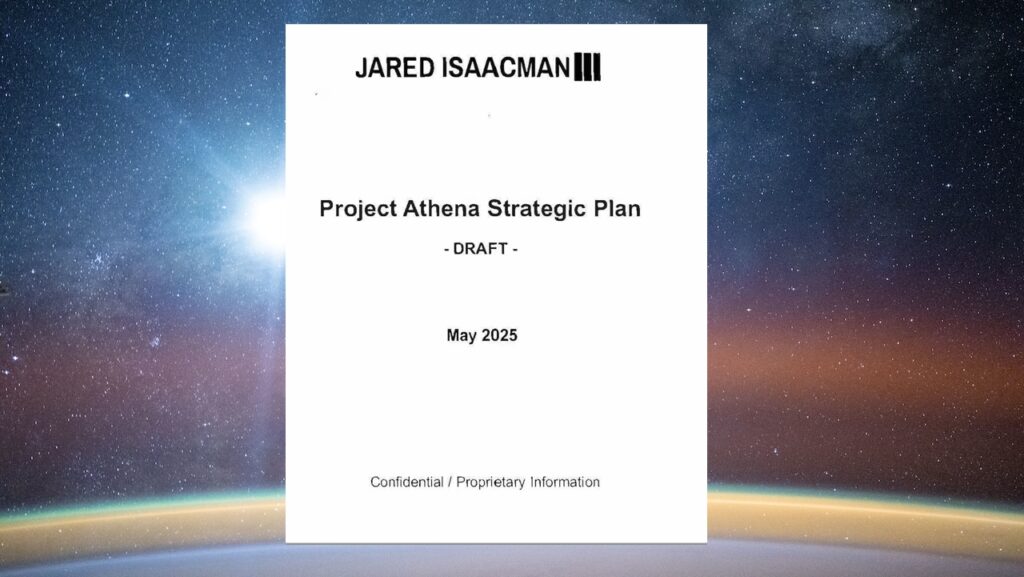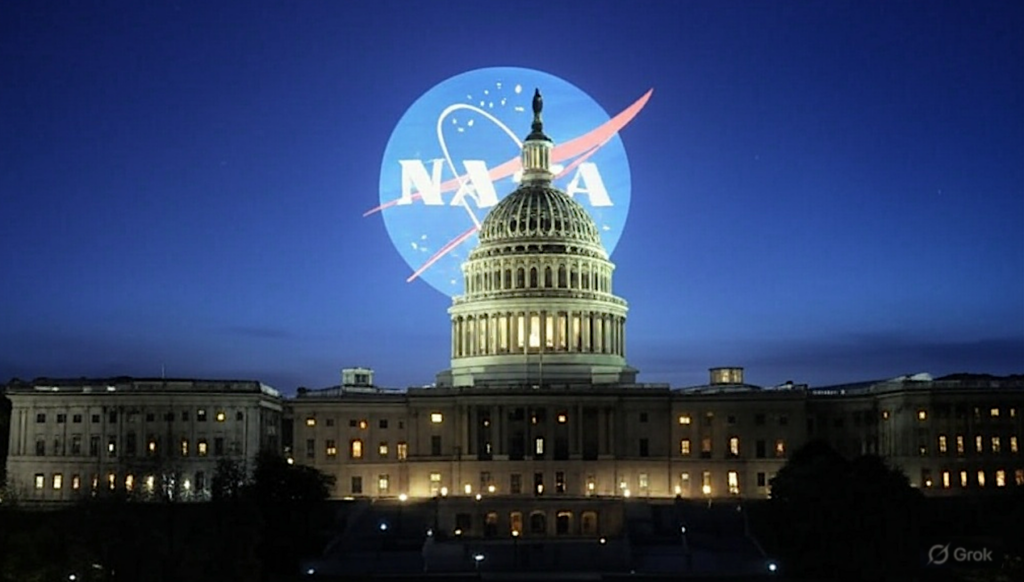Formulating Space Policy While Looking Through A Straw
 Formulating Space Policy While Looking Through A Straw
Formulating Space Policy While Looking Through A Straw
“The Space Frontier Foundation believes that space settlement is the real reason to have a space program, and therefore we insist on measuring every policy or project against that purpose …
… A lot of people are perfectly content on using ever more powerful telescopes and robotics to explore the universe – and maybe sending people – later. And these perfectly rational people can make a logical, cogent argument for that as the purpose for funding NASA – and for deciding what to fund or not to fund. That’s the problem with idealistic space goals that proceed from a single personalized and narrow premise (bias): they mean nothing if the person you are talking to does not agree with you within the first few sentences. Its like looking at the world (or the universe) through a straw and then trying to proclaim policies that apply to everything outside the narrow field of view of the straw. You don’t see what other people see or incorporate it into your world view. In a slightly larger sense this is the problem that all space advocacy groups have. They just assume a priori that everyone thinks space is cool in and of itself and that money should therefore be spent on things that space advocates think are cool. The real world takes a back seat. Small wonder space advocates have not made much headway in the past few decades.”









Although the SFF proposal is addressed primarily to human spaceflight, it at least raises the question of how we should evaluate goals for human spaceflight. That’s a step forward from the fake discussion and unproductive argument we have seen so far.
That’s why I support the NASA manned programs even if in an ideal world, I’d rather focus much more heavily on telescopes and robotic missions. There’s no way you’d get to keep the money that NASA currently spends on space if the manned programs were cancelled, and every budget cut would make NASA even weaker when it came to the table. It ultimately comes down to political economy in a world where the number of people seriously interested in space exploration are rather small.
The worst case scenarios would be if space exploration went the way of oceanic exploration (which is heavily under-funded) or particle physics research (where they can’t even get a new particle accelerator built, and killed the SSC back in the early 1990s). Maybe you’d get a single project every few years or decade (at under $1 billion in budget), but not much else. We’d be stuck trying to work on shoe-string budgets and the generosity of billionaires.
Yes, most of these societies have the tunnel vision you describe and their hearing has just as narrow a field. What makes the common weaknesses they share even more disappointing is that we are at an epoch in NASA’s story. This is a big transition period and these advocacy groups and societies are not close to united enough, not up to the task.
There was a collective that walked the halls of Congress in February. At least they tried. They got to speak to legislative advisers or assistants and discovered what they should have known ahead of time. You must wag either wads of money or blocks of votes at politicians to get their attention. I suggested they carry with them a Double Robotics Telepresence Robot to present to each politician a crowd of space advocates organized from their district or state. Votes and grassroots potential. Have that group organized and ready to respond from each legislators districts with a short list of Qs. I never heard back from Planetary. Faces, lots of live faces, mean a lot more than signatures or emails often snuffed out by the endless flow.
The another problem that has arisen is that nestled between advocacy groups are thinly veiled lobbyist groups. I can’t list them but I noticed one and it should be expected that they are there. They are effectively infiltrators that can create wedges between the legitimate groups. So the real advocacy groups need to create an effective political arm that they collectively fund. I would suggest they use tech to make their points. Remember skywriting planes? Why not spacewriting satellites? And any which way, with limited resources, these groups need to target key legislators, those vulnerable. No holds barred because there is not much barring corporate lobbyists and the rich from influencing votes now.
I’ve also noticed that you need either calls or dollars. But Bill Nelson is on the fence on commercial spaceflight. If twenty people call his washington office today and tell him commercial crew needs full funding, it could really accomplish something.
Let me add a couple more ideas. Neil Tyson and producers should have negotiated a block of “Ad” time during the programs that they could offer to space advocacy groups to present their word. Another is that while, no time soon will these groups be able to march on Washington, maybe on the hamlet of Washington, WY, why not create video content so compelling that it goes viral and piggybacks their message? Why not monetize ads on youtube for these space advocate groups? Or web sites such as this one that always includes such ads attached to video content?
” You don’t see what other people see or incorporate it into your world view. “
A perfect description of the US House of Representatives.
Yes…it is unfortunate that a reaction to stress among groups is often to bicker among themselves, instead of seeing how they need to band together, respecting the validity and importance of what can be competing perspectives.
I’m not one to place too much importance on leaderships role in events, but if there is one area where leadership in NASA could have done better since back in the 90’s it would have been here – – – to discourage this incessant bickering.
Instead we have had administrators like Griffin who trashed the R&D community, or who have shown disregard for an entire program and it’s people (like ISS). We have had spaceflight program managers (since well before Cx) where development center leadership would disrespect ops centers, or mission teams looked down on ground teams, and so on. Ditto for the adversarial relationships that leadership allows and at times encourages that has created nothing but dysfunction between NASA and industry counterparts. All this has bred a culture of overly simplistic blame games, bickering, and disrespect among people who should be working together. Leaders should set the example. At the least, leaders should know full well that action breeds reaction. This is under their control in their statements, weather direct, or in nuances, or in scuttle-butt about what he said, or she said. And so we find ourselves with this “narcissism of small differences”.
Amen, brother.
The only self-sustaining space business that you are going to get is a space business based on making a profit. NASA has never been in the Space business. They are a Space EXPLORATION program that has always been assumed to be incapable for paying for itself. (That does not have to be true. I would pay “pay per view” prices in a movie theater to watch manned exploration of mars.) And robots are piss poor explorers, especially compared to trained and experienced field geologists and biologists. Humans do things 100 times faster than robots! Some Martian soil contains 60% water ice content. And new underground seeps have been spotted by even robots in the last ten years up there. But drilling for liquid water hundreds of meters below the surface looking for martian life is going to be accomplished a 100 times more quickly by humans than robots.
It might well be done 100 times more quickly, but with current technology this would take at least 100 times more money. If you want human spaceflight to be practical, you have to vastly reduce the cost.
As V4 said, “100 times more quickly” also costs at least 100 times more money. And because it will be the manned space program, for at least a decade or two, the goal will inevitably narrow from “Doing major geology on Mars (with humans)” to “Building a manned base on Mars”, to “Landing human missions on Mars”, to “Landing a human mission on Mars.”
And most of the enabling technology will be cancelled. You mention drilling cores “hundreds of meters(sic)” deep, but the drilling rig suitable for that (and all the additional technology required to set-up and maintain the rig) are not the “mission” and therefore will be cut early in the program.
As soon as you involve humans, the mission contracts to eliminate the very thing for which you sent the human in the first place. It contracts until sending humans is the mission.
So, if you want to use human to do something on Mars better than robots, step one is not to send humans, but to drastically lower the cost of doing anything in space with humans. Lowering the launch price, eliminating the “standing army” that causes ISS to cost $3b/yr just to exist, perhaps even having private astronauts from multiple vendors to break the status quo.
Once the cost of using humans in space drops, it drastically opens up our capabilities. But trying to fly human missions before we lower those costs, not only reduces our capacity, but seems to delay any progress in lowering costs.
It seems human spaceflight is mostly about the possibility of future human settlements and human spaceflight has been and is major part of NASA’s budget.
It also seems human settlements essentially about markets. Though it’s quite possible to have markets without settlement- the satellite market is an obvious example- it seems towns and settlements are market places.
So one just say NASA’s job in to help establish markets in space- this would include human settlements in space.
One could also say that NASA’s is to find ways of lower the costs of getting into space and doing things in space. And this is also related to establishing more markets in space. And the costs of getting into space are lowered then one enabling things like large telescopes in space.
It’s unlikely we would have had the Hubble Telescope with human spaceflight. And even though current large telescopes are designed not to be service in space, it seems this is mistake rather than to way of the future.
So it seems like most of NASA budget is related to human spaceflight,
and seems to to me better to focus all NASA in this direction of doing things which would establish markets in space.
So I think more science missions should connected with exploring the to determine if there is minable water, and I think more science related missions should retated to robotic refueling of spacecraft and robotic servicing of space assets [like telescopes and other satellites] and this example of stuff related to markets and evenually to human settlements in space.
NASA is about HSF. Simple. NASA gets support from citizens because of what it does in HSF. “Gravity” is about HSF and it pushes the average citizens appreciation for the Penny on the dollar that is spent from NASA. I can appreciate, as can all of you on this forum, the efficiency of robotic missions and science. However, the general public needs some ONE to connect to keep Space on their minds in a time of problems with medical insurance, and jobs and the rest. “Apollo 13” “The Right Stuff” is not about the hardware, it is about the people. To reword a frequently quoted saying to make sense of the feeling of the paying public: “If there is NO Buck Rogers, there will be no bucks from us.” All the science projects being funded by NASA would be well advised to take the paying public’s desire into consideration when asking why so much $$ is being spent on HSF.
The solution is obvious to me: split nasa in two, a space science institute with priority set by the scientific community, and a space agency with priority set democratically by everyone else (meaning congress).
I would predict space science institute will get very little funding
and priority set democratically by everyone else will have it’s budget double or triple.
How about a four way split:
NACA – Aviation research.
SARPA – “Space ARPA”, space technology research.
SSI – “Space Science Institute”.
NASA – Just HSF.
I don’t think fragmenting the agency would help, in fact it would narrow our vision and make it harder to do useful work which provides our nation with practical benefits. No one suggests splitting DOE into separate agencies for nuclear and coal, or DOT into separate agencies for aviation and busses. NASA needs to work much more closely with FAA and the entire aviation industry on aeronautics, with NIOSH on occupational safety, with NSF on space science and NIH on life science, with EPA and NOAA on earth observation, with DARPA on rockets and missiles. with collaboration between NASA centers and between NASA and the universities on everything. The days when NASA had a single “mission” which every activity had to support are, or at least should be, dead and gone. Our mission is to provide useful technology and important science to the taxpayers of America.
This seems to justify the idea of a split.